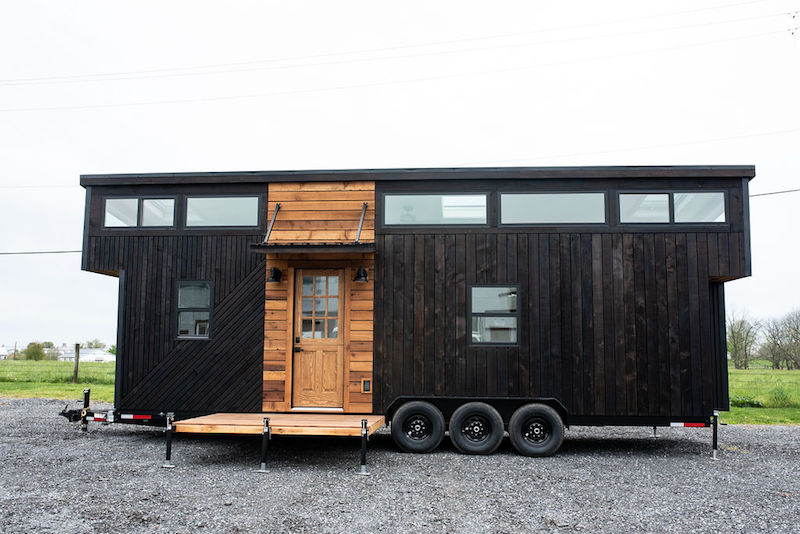An FHA Loan, or a Federal Housing Administration loan, is a home loan backed by the federal government. This loan type is intended to help low-to-moderate income borrowers, making it easier to buy a home with lower credit scores and lower down payments than what is required by traditional lenders. Your loan will still come from an FHA-approved lender, so the “FHA loan” is really more like an “FHA insured” loan (the federal government will cover the claim if you end up defaulting).
FHA borrowers can put as little as 3.5% down on their home, rather than the more traditional 20%, and even people who have gone through bankruptcy may be able to qualify for an FHA-backed home loan.
So what's important to know in 2022 about the FHA loan? Here's an FHA FAQ for some of the most common questions.
FHA vs. Conventional Loan
So what exactly is the difference between an FHA loan and a conventional loan? A conventional loan is funded by private financial lenders. Unlike the FHA loan, conventional loans are not guaranteed by the government, so lenders require more stringent qualifications. You’ll need a higher credit score, higher down payment, and lower debt-to-income ratio to qualify for a conventional loan.
Conventional loans are also known as “conforming” loans - they need to conform to Fannie Mae and Freddie Mac standards. These are government agencies that buy mortgages, which helps to keep interest rates low while allowing banks to issue more loans.
The main conforming criteria are:
- The loan amount falls under the annual determined dollar cap for your county
- A credit score of 620 or higher
- Debt-to-Income Ratio below 50%
- A maximum Loan-to-Value Ratio of 97% (meaning you’ll need to put at least 3% down).
Keep in mind that these factors are interdependent, so if you have a lower credit score you might be able to make up the difference by having a lower DTI (and still get approved for the conforming loan).
If you can't meet these criteria, then you may be able to qualify for an FHA loan.
FHA Loan Requirements for 2022
So who is eligible for an FHA loan? The requirements that determine whether you qualify for this loan type are largely financial in nature. You don’t need to have a particular type of job, be a certain age, etc.
According to the FHA website, the loan requirements for borrowers are:
- FICO® score at least 580 = minimum 3.5% down payment
- FICO® score between 500 and 579 = minimum 10% down payment
- MIP (Mortgage Insurance Premium) is required
- Debt-to-Income Ratio below 43%
- The home must be the borrower's primary residence
- The borrower must have a steady income and proof of employment
Additionally, the homes themselves need to meet certain criteria to qualify for an FHA loan. The FHA sets a maximum “floor” and “ceiling” amount of what the loan can cover. The current floor for a single-family home is $420,680 (applicable to low cost areas) and the current ceiling is $970,800 (for high-cost areas). Every U.S. county will have a different maximum that the FHA loan can cover. Biden announced the most recent update in Dec. 2021, when the floor and ceiling both increased substantially to account for the rising cost of homes.
Will FHA loan limits increase in 2023? Yes, in all likelihood the FHA loan limits will increase in 2022 as they have for the past several years. This will help the loan limits keep up with the rising cost of homes.
Downsides of the FHA Loan
Although the FHA loan can be advantageous for first-time homebuyers who may struggle to qualify for a conventional mortgage, there are some drawbacks associated with it as well.
The MIP
Every FHA loan is required to have a MIP (Mortgage Insurance Premium) that protects the lender if you default on the loan. Depending on the base loan amount and your LTV (loan-to-value ratio), your annual MIP can range from .80% of the value of your home, up to 1.05%. The MIP will increase the amount you have to pay month to month, and it can be difficult - or even impossible - to eliminate, depending on the length and term of your loan.
If your loan-to-value ratio is greater than 90% and your loan term is greater than 15 years, for example, your MIP will last for the loan term.
This is different from a conventional mortgage, where it’s usually possible to eliminate PMI (private mortgage insurance) after you’ve paid off 20% of your home. With the FHA loan, you will have the MIP for at least 11 years.
A Lower Down Payment Means Higher Monthly Payments
One reason 20% down payment has been the traditional amount for buying a home is that it helps keep the interest rate and monthly mortgage payment down. The more you borrow, the more you end up paying towards interest over the lifetime of the loan. Even though you are putting down less money initially, it’s ultimately making your house more expensive in the long run. Nerdwallet has a handy FHA calculator for approximating your monthly payments.
Difficulty Buying Homes with FHA Loans in a Competitive Market
It’s been a wild couple of years for the housing market. In 2021, U.S. housing stock gained about $6.9 trillion in value, according to Zillow. the biggest increase in a single year. Housing demand is at an all-time high and home sellers are fielding unprecedented bidding wars on their homes, and homes often sell 35% over asking - or more.
Unfortunately, sellers often view FHA loan buyers as “less qualified” compared to other buyers. In a competitive market, they may figure that someone opting to put 3.5% down on their home is already stretching their budget and may not get their loan approved to buy the home. And with so many homes going over asking, sellers are often looking for homeowners who can pay the difference - in cash.
“When you have FHA loans or VA loans, those are really difficult to win with right now,” observes Baltimore-based buyer agent Katie Buscher. “People have the cash to waive appraisals. I work with a lot of first time homebuyers, and they just don’t have the money to do that.”
This isn’t to say that you shouldn’t use an FHA loan - especially if it’s the best or only option for your financial situation. Just be aware that you may face even more challenges than the average buyer. Communicate with your agent and mortgage advisor so that you know what all your options are.
Can an FHA Loan be Used for Foreclosure / Investment property / Renovations?
You may be wondering what the limitations are of the FHA loan. Many people may be surprised to learn that the FHA loan can be used for foreclosures. However, the home needs to meet certain criteria to qualify for an FHA loan.
It’s important to note that the FHA loan is not meant for investment properties, so you’d need to be able to move into your foreclosed home within 60 days. This means it has to be ready for habitation (and an FHA-approved appraiser will inspect the house and report on its condition to the lender). All FHA homes need to be structurally sound and free of health and safety hazards, which can sometimes present an issue for foreclosed homes.
FHA 203(k) Rehabilitation Loan
There are two FHA loans for foreclosures/renovations. One is intended for fixing up property you already own, and the other is intended for purchasing a distressed property.
- With the Limited Rehabilitation Loan, homeowners can borrow up to $35,000 in order to upgrade, repair, or improve their home. This is something you can access for an existing property you own, or to make your new home move-in ready (by updating the kitchen, removing the old carpet, etc).
- With the Standard Rehabilitation Loan, homebuyers need to make at least $5,000 worth of repairs, and the total value of the property still needs to meet the FHA mortgage limits for the area. This loan can be helpful in buying distressed property because traditional lenders often don’t want to take the risk. The home still needs to meet basic standards for health and safety, however. As a note: you will need to hire a contractor - you can’t simply opt to do the repairs yourself. For loan approval, the contractor will need to collect accurate bids for completing the work.
Can You Refinance an FHA Loan?
You can refinance your FHA loan in the future, although it’s unlikely that rates will go much lower than they are now (which is typically a top reason for refinancing).
Still, refinancing can be useful if you want to switch over to a conventional loan and eliminate your loan’s MIP fee. Refinancing can also be useful if you need to borrow cash or if you need to lower your overall monthly payment by stretching it over a longer period of time.
Just keep in mind that refinancing comes with a cost: as a rough guide, it typically costs 2 to 5% of the loan amount, or between $1,500 and $4,000 in most cases.
For Further Reading



